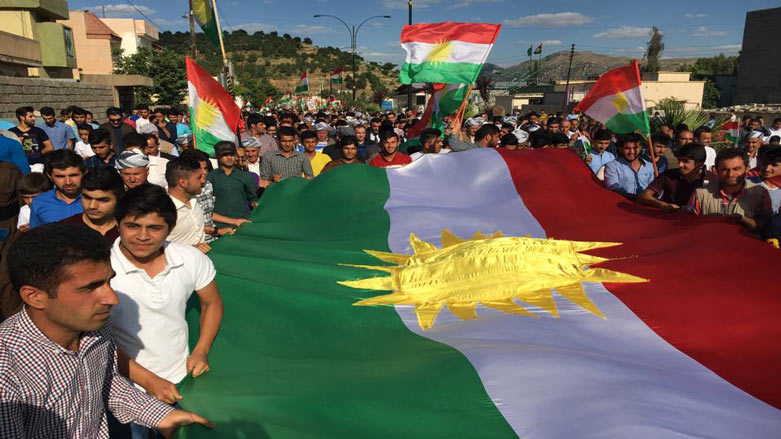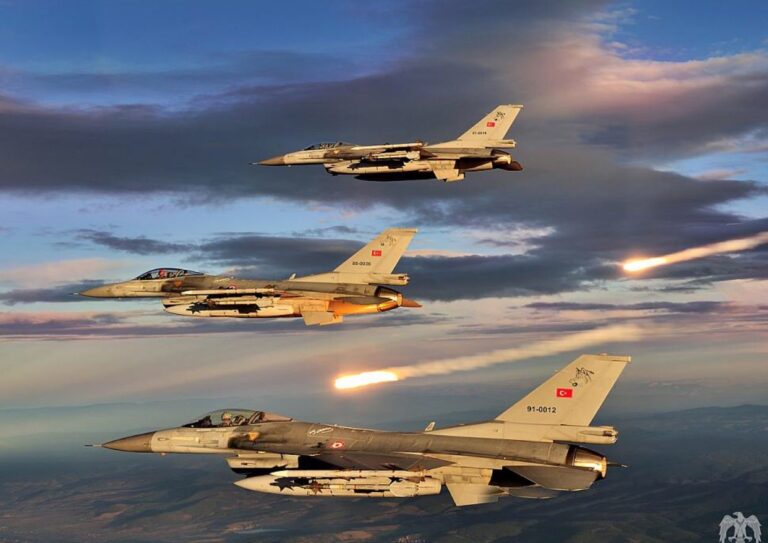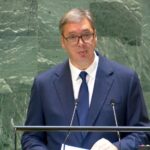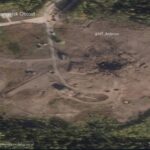A recent intensification of Turkish airstrikes in the Iraqi Kurdistan region has fuelled growing concerns about Ankara’s broader geopolitical ambitions in northern Iraq.
While Turkey has long targeted Kurdistan Workers’ Party (PKK) militants in the region, reports from local officials indicate a disturbing new pattern of mounting civilian deaths.
Kurdish officials confirmed that six civilians were killed in indiscriminate airstrikes. The latest tragedy occurred when a Turkish drone hit a civilian vehicle in the Zalan sub-district, killing three people, including a child, on their way to a medical appointment.
Othman Anwar, acting mayor of Sulaimaniyah’s Sharbazher district, expressed outrage at the growing civilian death toll.
The recent drone strike on a civilian vehicle aimed at neutralising the PKK – are affecting far more than militant targets.
Iraq and Turkiye last month signed a joint Memorandum of Understanding (MoU) focused on military, security, and counter-terrorism cooperation following years of tensions over Turkey’s military actions against the PKK, which has long operated from bases in northern Iraq.
The PKK, which was formed in the late 1970s, seeks Kurdish autonomy in Turkiye and is designated as a terrorist organisation by Turkey, the US, the UK, and the EU.
Critics have pointed out the contradictions of Turkiye’s foreign policy, which condemns civilian suffering caused by Israel in Gaza while continuing to target civilians in Iraqi Kurdistan.
These actions, many argue, constitute a war crime under international law, as they violate the principles of protecting non-combatants during military operations.
While Turkey continues to point to the PKK’s presence as a pretext, many regional observers argue that Ankara’s actions are part of a broader strategy to reshape the political landscape in northern Iraq.
Turkey’s intensification of airstrikes cannot be separated from its geopolitical rivalry with Iran, which has steadily expanded its influence in northern Iraq, particularly in Kirkuk and Sulaimaniyah. Tehran’s growing presence presents a direct challenge to Turkey’s regional ambitions and strategic objectives.
Kirkuk, in particular, has become a flashpoint for competing interests. Turkiye’s increased military activity in the region is, in part, a reaction to Iran’s growing power.
Thus, Turkey’s airstrikes reflect a shift towards a more aggressive, security-first policy under President Recep Tayyip Erdogan.
“Turkey views the PKK’s presence in Iraqi Kurdistan as a national security threat, prompting aggressive military actions aimed at extending its regional influence – particularly against Iran.
“Turkey does not hesitate to launch drone airstrikes to target anyone suspected to be PKK militants and anywhere in the Kurdistan region based on ground unconfirmed information sources.
Turkey is asserting dominance in a region where it feels increasingly threatened by Iran’s growing presence.
The rivalry between Turkiye and Iran extends beyond military action. Political developments within the Kurdistan Region and Iraq reflect this competition for influence.
The Patriotic Union of Kurdistan (PUK), closely aligned with Iran, succeeded in electing Rebwar Taha as Kirkuk’s governor, while Mohammed Ibrahim al-Hafidh of the Arab Qiyada Alliance was nominated as chief of the Kirkuk Provincial Council.
The Iraqi Turkmen Front, which has strong ties to Turkey, along with the Kurdistan Democratic Party (KDP) – a rival Kurdish party to the PUK – boycotted the session in Baghdad where these power-sharing posts were decided.
The KDP, historically aligned with Turkiye, has found itself at odds with the PUK, which enjoys close ties with Iran and the Iran-backed Shia ruling coalition in Baghdad.
This political landscape, coupled with ongoing Turkish military action, points to a broader strategy of containment. Turkey’s military presence is about much more than fighting the PKK because Turkiye has been pursuing a policy of containment towards Iraq, especially the Kurdistan region.Turkey’s containment strategy has been effective, reducing the influence of Iran, Iraq, the US, and the EU in the region.
“The Turkish army is currently stationed just 27 kilometres from Mosul,”
Either the Iraqi army was unaware of the terms of the MoU with Turkiye, or that Ankara had overstepped its boundaries, prompting the use of air defences.
We suppose a possibility of a grim outcome if Turkiye continues its current trajectory.
Such Turkish policy will eventually result in the elimination of the Kurdistan region as an entity Turkiye’s endgame could involve a scenario where Iraqi forces, possibly backed by Iran’s Popular Mobilisation Forces (PMF), replace Turkish military positions – effectively shifting control of key areas.Turkey has realised that there is no cost attached to undermining Iraq’s sovereignty.While Ankara condemns the killing of innocents in Gaza, Turkish authorities continue to target civilians in the Kurdistan region without any hesitation. Turkiye’s actions in northern Iraq, driven by its rivalry with Iran and its broader ambitions in the region, are creating instability that could have far-reaching consequences.

More on this story: It’s Time For An Independent Kurdistan




